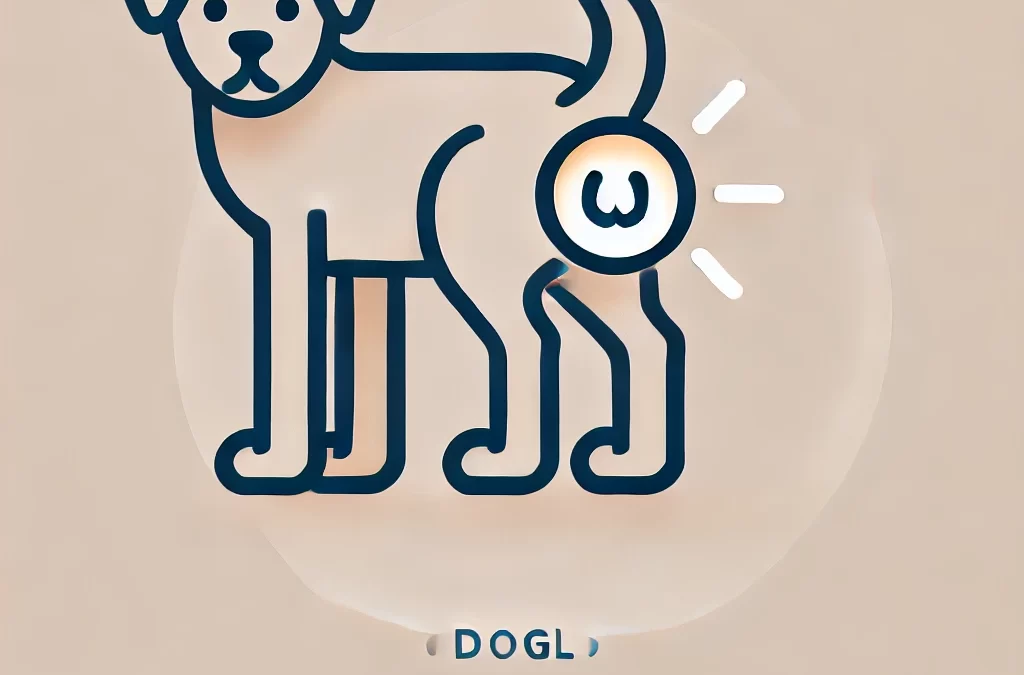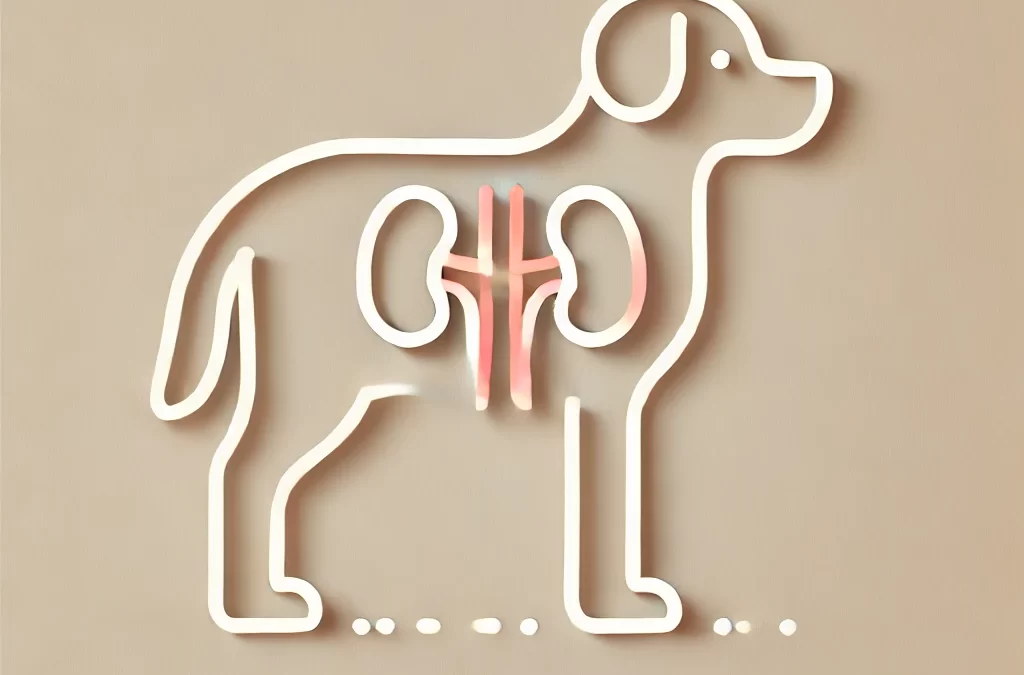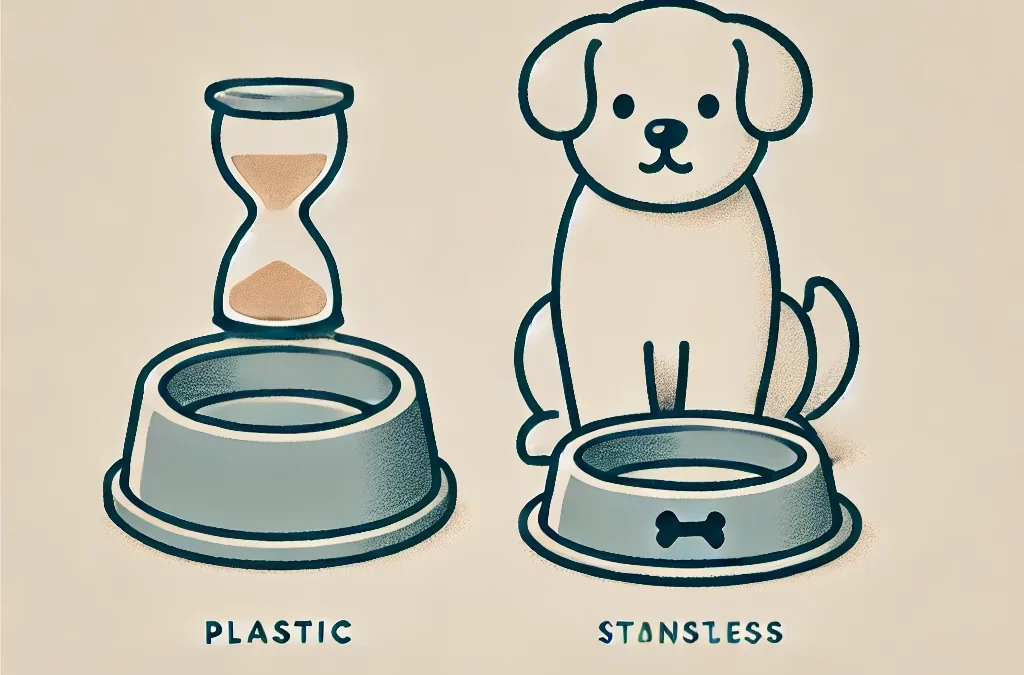
by TCMVET | Dec 13, 2024 | Dog Cancer & Tumors
Nose cancer in dogs, also known as nasal cancer, is a relatively rare but aggressive condition that affects the nasal cavity or sinuses. While it accounts for less than 1% of all canine cancers, its severity lies in its invasive nature and the difficulty of early detection. This article delves into the symptoms, diagnosis, treatment options, and supportive care for dogs battling nose cancer.
What Is Nose Cancer in Dogs?
Canine nose cancer primarily involves tumors that develop within the nasal passages or sinuses. The most common type is adenocarcinoma, but other forms like squamous cell carcinoma, fibrosarcoma, or osteosarcoma can also occur. This condition typically affects older dogs, with larger breeds appearing to be at a slightly higher risk.
Signs and Symptoms
Early signs of nasal cancer can be subtle and are often mistaken for respiratory infections or allergies. As the disease progresses, the symptoms become more pronounced. Look out for the following:
- Persistent Nasal Discharge
Unilateral discharge (affecting one nostril) that is bloody or mucoid in nature is a hallmark symptom.
- Frequent Sneezing
Chronic sneezing that doesn’t improve with treatment could indicate nasal irritation from a tumor.
- Facial Swelling
Swelling around the nose, eyes, or forehead may occur as the tumor invades surrounding structures.
- Breathing Difficulty
Snoring or noisy breathing might indicate a blockage in the nasal passages.
- Nose Bleeds (Epistaxis)
Intermittent or continuous bleeding from the nose is often reported.
- Neurological Symptoms
If the tumor extends into the brain, symptoms like seizures, disorientation, or behavioral changes may appear.
- Loss of Appetite and Weight Loss
As with many cancers, systemic effects can lead to reduced food intake and weight loss.
Diagnosis
Diagnosing nose cancer involves a thorough evaluation, including:
- Physical Examination: A vet may check for asymmetry in the face or abnormal sounds during breathing.
- Rhinoscopy: A small camera inserted into the nasal passages helps visualize the tumor.
- Imaging: X-rays, CT scans, or MRIs provide detailed views of the tumor and its spread.
- Biopsy: Tissue samples confirm the type and severity of the cancer.
Treatment Options
Treatment depends on the tumor’s size, type, and stage, as well as the overall health of your dog. Options include:
- Radiation Therapy
Radiation is the most effective treatment for nasal cancer, aiming to shrink the tumor and alleviate symptoms. While it may not cure the cancer, it can significantly improve quality of life.
- Surgery
Surgical removal of the tumor is challenging due to the complex anatomy of the nasal area but may be attempted in specific cases.
- Chemotherapy
Chemotherapy is less commonly used but might be recommended for certain tumor types or as an adjunct to other treatments.
- Palliative Care
When curative treatment isn’t an option, palliative care focuses on relieving pain and discomfort through medications, including anti-inflammatories, pain relievers, and nasal decongestants.
Natural Therapies for Supportive Care
Incorporating holistic approaches alongside conventional treatments can enhance your dog’s comfort:
- Herbal Supplements
Herbs like turmeric (curcumin) and astragalus are believed to have anti-inflammatory and immune-boosting properties.
- Dietary Adjustments
A high-quality, low-carbohydrate diet supports overall health and reduces inflammation.
- CBD Oil
Cannabidiol may help manage pain and reduce anxiety in dogs with advanced cancer.
Prognosis and Quality of Life
The prognosis for canine nose cancer depends on factors like tumor type and stage at diagnosis. With radiation therapy, many dogs experience symptom relief and extended survival times, often ranging from 8 to 18 months. Without treatment, the disease progresses quickly, often within weeks to a few months.
How to Support Your Dog
- Monitor Symptoms: Keep track of changes in breathing, eating, or energy levels.
- Frequent Vet Visits: Regular check-ups ensure your dog’s condition is monitored closely.
- Provide Comfort: Soft bedding, a quiet environment, and easy access to food and water make a big difference.
Final Thoughts
Canine nose cancer is a daunting diagnosis, but with timely intervention and a comprehensive care plan, you can give your dog the best possible quality of life. Always consult with your veterinarian to explore treatment options tailored to your dog’s specific needs.

by TCMVET | Dec 13, 2024 | Dog Cancer & Tumors
Kidney cancer in dogs, while rare, is a serious condition that can significantly impact your furry friend’s quality of life. Recognizing the signs early can make a big difference in treatment outcomes. In this article, we’ll explore the telltale signs of kidney cancer, discuss why it often goes unnoticed, and provide insights into supportive care options.
What Is Kidney Cancer in Dogs?
Kidney cancer refers to abnormal cell growth in one or both kidneys. In dogs, renal cell carcinoma is the most common type of kidney cancer, primarily affecting older dogs. While its exact cause remains unclear, genetic predisposition and exposure to toxins may play a role.
The Subtle Signs: Why Kidney Cancer Often Hides in Plain Sight
Kidney cancer symptoms can be easily mistaken for less severe issues like urinary tract infections or general aging. This overlap in signs often delays diagnosis. Here’s what to look out for:
- Frequent Urination or Difficulty Urinating
An increase in urination frequency or visible discomfort while urinating may indicate kidney stress or obstruction caused by a tumor.
- Blood in the Urine (Hematuria)
Bright red or dark brown urine is a key warning sign that something might be wrong with your dog’s kidneys.
- Loss of Appetite
A sudden lack of interest in food, combined with weight loss, may signal systemic issues related to kidney function.
- Lethargy
If your dog seems unusually tired or unwilling to engage in daily activities, this could point to the underlying fatigue caused by kidney dysfunction.
- Abdominal Swelling
Swelling in the abdomen could result from a large kidney tumor pressing against other organs.
- Vomiting and Nausea
As kidney cancer progresses, toxins build up in the blood, leading to gastrointestinal distress.
How Kidney Cancer Differs from Other Conditions
Many of the above symptoms mimic those of kidney disease, bladder infections, or even diabetes. However, in kidney cancer, these signs are more persistent and worsen over time without treatment.
The Role of Diagnostics
Detecting kidney cancer requires a combination of tests:
- Ultrasounds and X-rays provide imaging of potential tumors.
- Blood Tests reveal abnormal kidney function or anemia.
- Urinalysis can identify microscopic blood or cancer cells.
Veterinarians may also recommend a biopsy to confirm the type and severity of the cancer.
Natural Therapies for Supportive Care
While surgical removal of the affected kidney is often the primary treatment, holistic approaches can complement traditional methods to improve your dog’s quality of life.
- Herbal Remedies
Herbs like Chuanxiong (Szechuan Lovage) may help enhance circulation and reduce inflammation around the kidneys.
- Dietary Adjustments
A low-phosphorus, high-quality protein diet supports kidney function and reduces the workload on the remaining kidney.
- CBD Oil
Cannabidiol may help manage pain and reduce stress in dogs undergoing treatment.
Prevention Tips: Can You Reduce the Risk?
While it’s impossible to completely prevent kidney cancer, there are steps you can take to promote overall kidney health:
- Provide fresh, filtered water.
- Avoid exposure to known carcinogens like pesticides.
- Schedule regular veterinary check-ups, especially for senior dogs.
When to See a Veterinarian
If you notice any of the symptoms above, consult your veterinarian immediately. Early intervention can lead to better outcomes, whether through surgery, chemotherapy, or palliative care.
Final Thoughts
Kidney cancer in dogs is a challenging diagnosis, but being proactive about your dog’s health can make a world of difference. By recognizing subtle changes and seeking timely medical advice, you can ensure your beloved pet receives the care and comfort they deserve.

by TCMVET | Dec 12, 2024 | Dog Cancer & Tumors
Anal cancer in dogs, while relatively uncommon, is a serious condition that requires prompt attention. The most frequently diagnosed type is anal sac adenocarcinoma, a malignant tumor that arises from the anal glands. This type of cancer is known for its aggressive nature and potential to spread to other parts of the body. In this article, we explore the symptoms, diagnosis, treatment options, and outlook for dogs affected by anal cancer.
What Is Anal Cancer in Dogs?
Anal cancer refers to the development of malignant tumors in or near the anal glands. These glands, located on either side of the anus, play a role in secreting fluids used for marking territory. When cancer develops in these glands, it often grows rapidly and can metastasize to nearby lymph nodes, lungs, or other organs.
Symptoms of Anal Cancer in Dogs
The symptoms of anal cancer in dogs can vary depending on the size and location of the tumor and whether it has spread. Common signs include:
- Lumps or Swelling: A noticeable mass or swelling near the anus.
- Difficulty Defecating: Straining, pain, or changes in stool shape due to the tumor obstructing the rectum.
- Bleeding: Blood around the anus or in the stool.
- Scooting or Licking: Dogs may scoot on the ground or excessively lick the area due to discomfort.
- Hypercalcemia Symptoms: Increased thirst, frequent urination, lethargy, or weakness caused by elevated calcium levels in the blood.
- Weight Loss and Loss of Appetite: Advanced cases may lead to systemic symptoms like weight loss and a reduced appetite.
How Is Anal Cancer Diagnosed?
To diagnose anal cancer, veterinarians use a combination of:
- Physical Examination: Checking for lumps, swelling, or discomfort in the anal area.
- Fine-Needle Aspiration or Biopsy: Sampling the tumor tissue to confirm malignancy.
- Blood Tests: Identifying hypercalcemia or other abnormalities.
- Imaging: X-rays, ultrasound, or CT scans to determine the extent of the cancer and check for metastasis.
Treatment Options for Anal Cancer in Dogs
The treatment approach depends on the stage and spread of the cancer. Common options include:
- Surgery: The primary treatment for localized anal cancer is surgical removal of the tumor and potentially affected lymph nodes.
- Radiation Therapy: Often used in combination with surgery to target residual cancer cells.
- Chemotherapy: Recommended for cases where the cancer has metastasized or as an adjunct to other treatments.
- Palliative Care: For advanced cases, pain management, dietary adjustments, and supportive care can improve quality of life.
Prognosis for Dogs with Anal Cancer
The outlook for dogs with anal cancer depends on several factors, including the size of the tumor, whether it has spread, and the treatment provided. Early detection and aggressive treatment improve survival rates, with many dogs experiencing extended periods of good quality of life post-treatment. However, advanced cases with metastasis have a less favorable prognosis.
Caring for a Dog with Anal Cancer
As a pet owner, providing a supportive and comfortable environment for your dog is essential. Follow these tips:
- Regular Vet Visits: Schedule frequent check-ups to monitor your dog’s condition.
- Nutrition: Offer a balanced diet tailored to your dog’s needs during treatment.
- Pain Management: Work with your vet to ensure your dog is comfortable.
- Emotional Support: Provide love and reassurance to help your dog cope with the stress of treatment.
Conclusion
While anal cancer in dogs is aggressive, early detection and a comprehensive treatment plan can make a significant difference in outcomes. Stay vigilant for symptoms and seek veterinary care promptly if you notice any unusual signs. With the right support and care, your dog can maintain a good quality of life, even during challenging times.

by TCMVET | Dec 12, 2024 | Dog Cancer & Tumors
Kidney cancer in dogs is relatively rare but can significantly impact a dog’s health when it occurs. The symptoms often appear gradually, making early detection challenging. Awareness of the potential signs can help pet owners seek timely veterinary care.
Common Symptoms of Kidney Cancer in Dogs
- Increased Thirst and Urination (Polydipsia and Polyuria):
- Excessive drinking and urination may indicate impaired kidney function due to the tumor.
- Loss of Appetite:
- Dogs with kidney cancer often experience a decrease in appetite, leading to weight loss.
- Weight Loss:
- Even with normal food intake, weight loss can occur as the body expends energy fighting the disease.
- Vomiting and Nausea:
- Kidney dysfunction caused by cancer can lead to toxins building up in the blood, causing gastrointestinal issues.
- Abdominal Pain or Swelling:
- Tumors may cause visible swelling or discomfort when the abdomen is touched.
- Blood in Urine (Hematuria):
- Urine may appear pink or red due to bleeding from the tumor.
- Lethargy:
- Dogs with kidney cancer may exhibit reduced energy levels and reluctance to engage in normal activities.
- Difficulty Breathing:
- In advanced cases, tumors may press against surrounding organs, causing respiratory issues.
- Pale Gums:
- Anemia, often associated with kidney cancer, can cause gums to appear pale.
- Bad Breath (Uremic Breath):
- A buildup of toxins in the blood due to reduced kidney function can result in an ammonia-like odor.
When to See a Veterinarian
If your dog exhibits any combination of these symptoms, it’s essential to seek veterinary attention promptly. While these signs are not exclusive to kidney cancer, they often indicate a serious underlying health issue that requires diagnosis and treatment.
Diagnosis of Kidney Cancer in Dogs
A veterinarian will typically use the following methods to confirm kidney cancer:
- Physical Examination: To detect swelling or discomfort.
- Urinalysis: To check for blood or abnormal substances in the urine.
- Blood Tests: To evaluate kidney function and detect any abnormalities.
- Imaging: Ultrasound, X-rays, or CT scans can identify tumors and their extent.
- Biopsy: A sample of the tumor may be taken to confirm its nature.
Treatment and Prognosis
Treatment options depend on the tumor type and stage but may include:
- Surgery: Removal of the affected kidney (nephrectomy) if the cancer is localized.
- Chemotherapy: For certain types of cancer, chemotherapy may slow progression.
- Supportive Care: Pain management, hydration, and nutritional support to maintain quality of life.
Early detection improves treatment outcomes, so regular veterinary check-ups are vital, especially for senior dogs.
By recognizing these symptoms and acting quickly, you can provide your dog with the best chance of receiving effective care and maintaining a good quality of life.

by TCMVET | Dec 11, 2024 | Dog Cancer & Tumors
Plastic is everywhere in our daily lives, from food containers to household items, and even in products designed for our furry friends. But could this seemingly innocuous material pose a threat to our dogs’ health? Emerging studies suggest that prolonged exposure to certain types of plastic could increase the risk of cancer in dogs. Let’s explore the science and what pet owners can do to safeguard their pets.
The Hidden Dangers of Plastics
Many types of plastics contain harmful chemicals such as bisphenol A (BPA), phthalates, and polyvinyl chloride (PVC). These chemicals are often used to make plastic durable, flexible, or transparent. However, they can leach into food, water, or even the environment, especially when plastics are heated, scratched, or degraded.
In animals, these chemicals can act as endocrine disruptors, interfering with hormone function. Prolonged exposure may lead to cellular changes, oxidative stress, and even tumor formation, increasing the likelihood of cancer. For dogs, whose daily habits often include chewing, licking, and close contact with various materials, the risks are compounded.
Everyday Sources of Plastic Exposure for Dogs
- Food and Water Bowls: Many dog owners unknowingly use plastic bowls, which can release harmful substances, especially if scratched or exposed to sunlight.
- Chew Toys: Low-quality plastic toys often contain non-regulated materials that may pose a risk when ingested or chewed extensively.
- Packaging: Dog treats, kibble, and other products are often stored in plastic packaging, which can leach chemicals into the food.
- Household Items: Dogs frequently come into contact with plastic objects around the house, from containers to furniture.
Cancer Risks Linked to Plastic
While direct links between plastic exposure and cancer in dogs are still under study, evidence from human and animal research indicates a concerning relationship. In dogs, cancers such as mammary tumors, testicular cancer, and lymphoma may be influenced by environmental toxins, including those found in plastic. Smaller breeds or dogs with pre-existing health conditions may be especially vulnerable.
Steps to Reduce Plastic Exposure
Pet owners can take proactive steps to minimize their dog’s exposure to harmful plastics:
- Switch to Safer Bowls: Use stainless steel, ceramic, or glass bowls for food and water instead of plastic ones.
- Choose High-Quality Toys: Opt for non-toxic, BPA-free toys or those made from natural materials like rubber.
- Rethink Storage: Store dog food and treats in airtight containers made of glass or stainless steel rather than leaving them in their original plastic packaging.
- Inspect Your Home: Limit your dog’s access to low-quality plastic items that could be chewed or ingested.
- Avoid Heating Plastics: Never microwave food or treats in plastic containers, as heat increases chemical leaching.
Advocating for Safer Standards
Beyond personal choices, pet owners can advocate for better safety standards in the pet product industry. Supporting brands that prioritize non-toxic materials and sustainable practices sends a powerful message. Additionally, staying informed about product recalls or emerging research can help protect your dog from hidden risks.
The Bigger Picture
While plastic is a ubiquitous part of modern life, its potential health impacts cannot be ignored. For our dogs, reducing exposure to harmful plastics is a simple yet effective way to support their long-term health and well-being. By making conscious choices and spreading awareness, we can ensure our pets live happier, healthier lives.

by TCMVET | Dec 11, 2024 | Dog Cancer & Tumors
When it comes to dogs, size does matter—but not just in the ways we typically think. While large dogs are admired for their strength and small dogs for their charm, recent studies have uncovered a surprising connection between a dog’s size and their risk of developing cancer. Let’s dive into this intriguing link and explore what it means for pet owners.
The Science Behind Size and Cancer Risk
Studies have shown that larger breeds, such as Great Danes, Bernese Mountain Dogs, and Rottweilers, are more prone to certain cancers compared to their smaller counterparts. But why? The answer lies in biology. Large dogs grow faster and have more cells in their bodies. This increased cellular activity raises the chances of mutations, which can lead to cancer.
On the other hand, small breeds like Chihuahuas and Dachshunds tend to have a lower cancer risk but are not completely immune. Certain cancers, such as mast cell tumors, can still affect smaller dogs, often due to genetic predispositions rather than size.
Fast Growth: A Double-Edged Sword
Large breeds experience rapid growth spurts during puppyhood, putting immense strain on their bodies. This fast growth can result in less stable cell division, which increases the risk of abnormal cell behavior over time. Additionally, the metabolic demands of larger dogs may accelerate aging, making them more susceptible to diseases, including cancer, as they grow older.
Longevity and Cancer Risk
Small dogs often live significantly longer than large breeds. While this longevity gives small dogs more time to develop age-related conditions, it also means their slower growth and cellular turnover may protect them from early-onset cancers commonly seen in larger breeds. In contrast, the shorter lifespan of larger dogs often correlates with a higher prevalence of aggressive cancers at a younger age.
What Pet Owners Can Do
Pet owners can take proactive steps to minimize cancer risks, regardless of their dog’s size. Regular veterinary check-ups, balanced diets, and proper exercise routines are essential. For large breeds, special attention should be given to maintaining a healthy weight, as obesity can further exacerbate cancer risks. Small dogs, while less prone to size-related cancers, still benefit from genetic screenings to identify hereditary risks early.
Redefining “Size Matters”
The link between size and cancer risk challenges us to rethink our approach to dog care. While we can’t change a dog’s size, understanding how it influences their health can help us make informed decisions. From choosing breeds to tailoring care routines, this knowledge empowers pet owners to give their furry friends the best chance at a long, healthy life.
In the end, whether big or small, every dog deserves love, attention, and proactive health care. By staying informed, we can all play a role in reducing cancer risks and ensuring our canine companions thrive.







